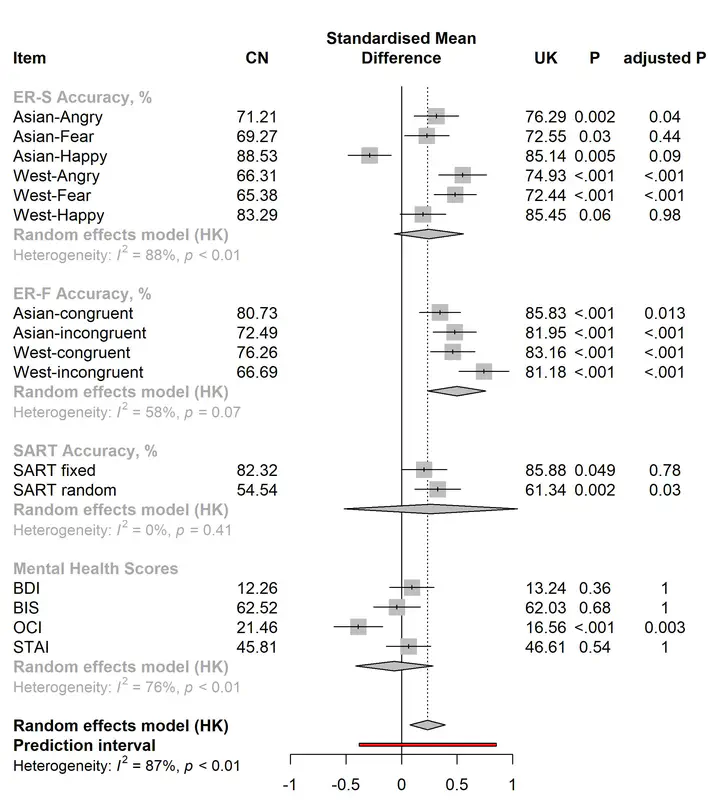
Abstract
Individuals worldwide share basic affective and cognitive abilities, and receive mental health diagnoses using similar scales, yet surprisingly little research has examined the validity of these measures across cultures. Here, we performed direct comparison between British participants (N = 187; 51.3% female, 48.7% male; age 19-73 years) and Chinese participants (N = 194; 66.5% female, 33.5% male; age 19-60 years) in mid-2022 on behavioural tasks of facial emotion recognition (with and without contextual faces) and sustained attention, as well as mental health measures of anxiety, depression, obsessive-compulsive disorder, and impulsivity. We found that British participants were better at recognising emotions, especially negative emotions; while Chinese participants showed higher obsessive-compulsive symptoms, driven primarily by one specific scale item. In contrast, the cultural groups exhibited negligible differences in sustained attention task and other mental health measures. This study provides novel evidence that culture has a greater influence on facial emotion recognition compared to other cognitive and clinical measures, and also raises concerns about potential cultural biases in established mental health scales.